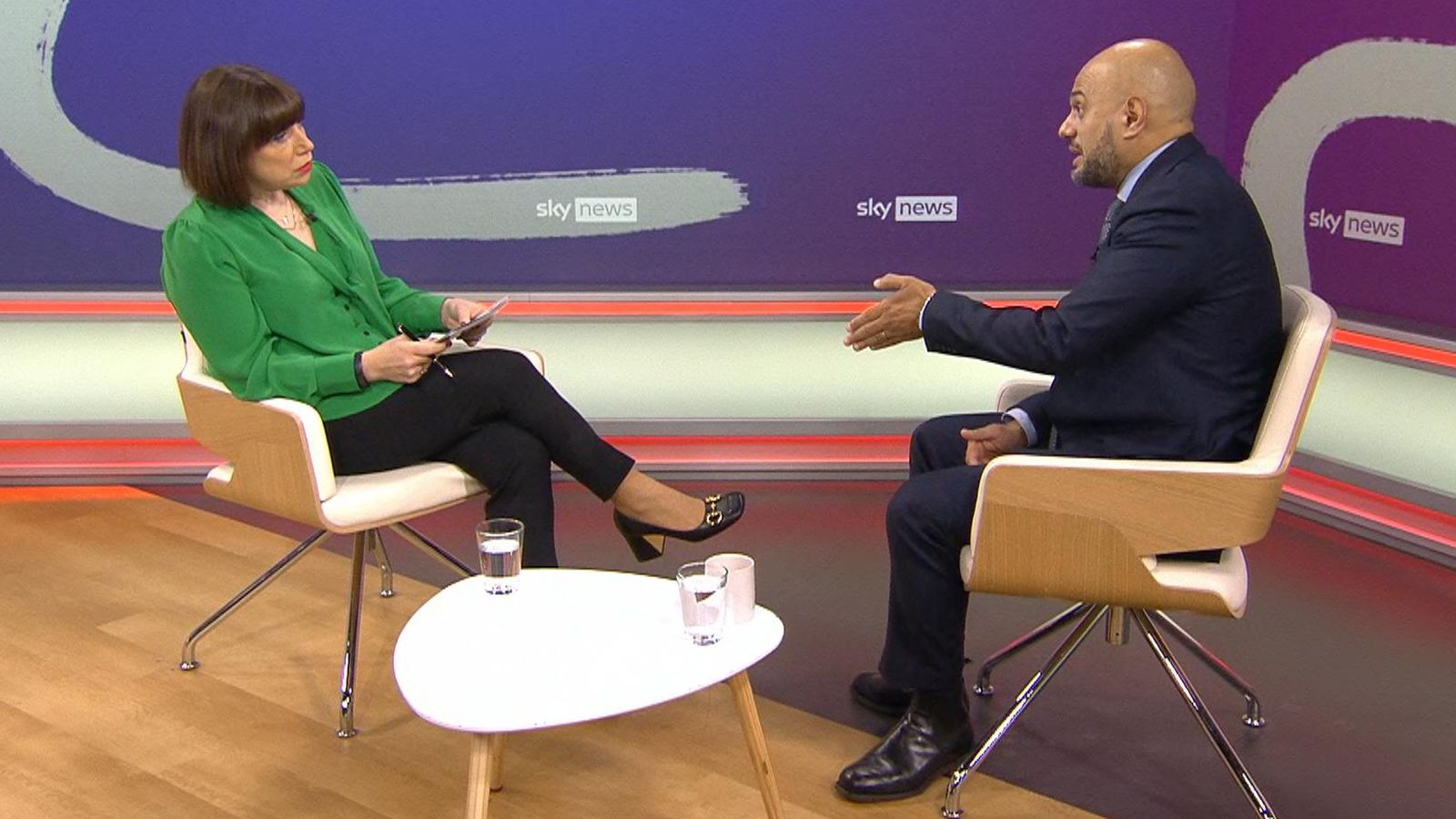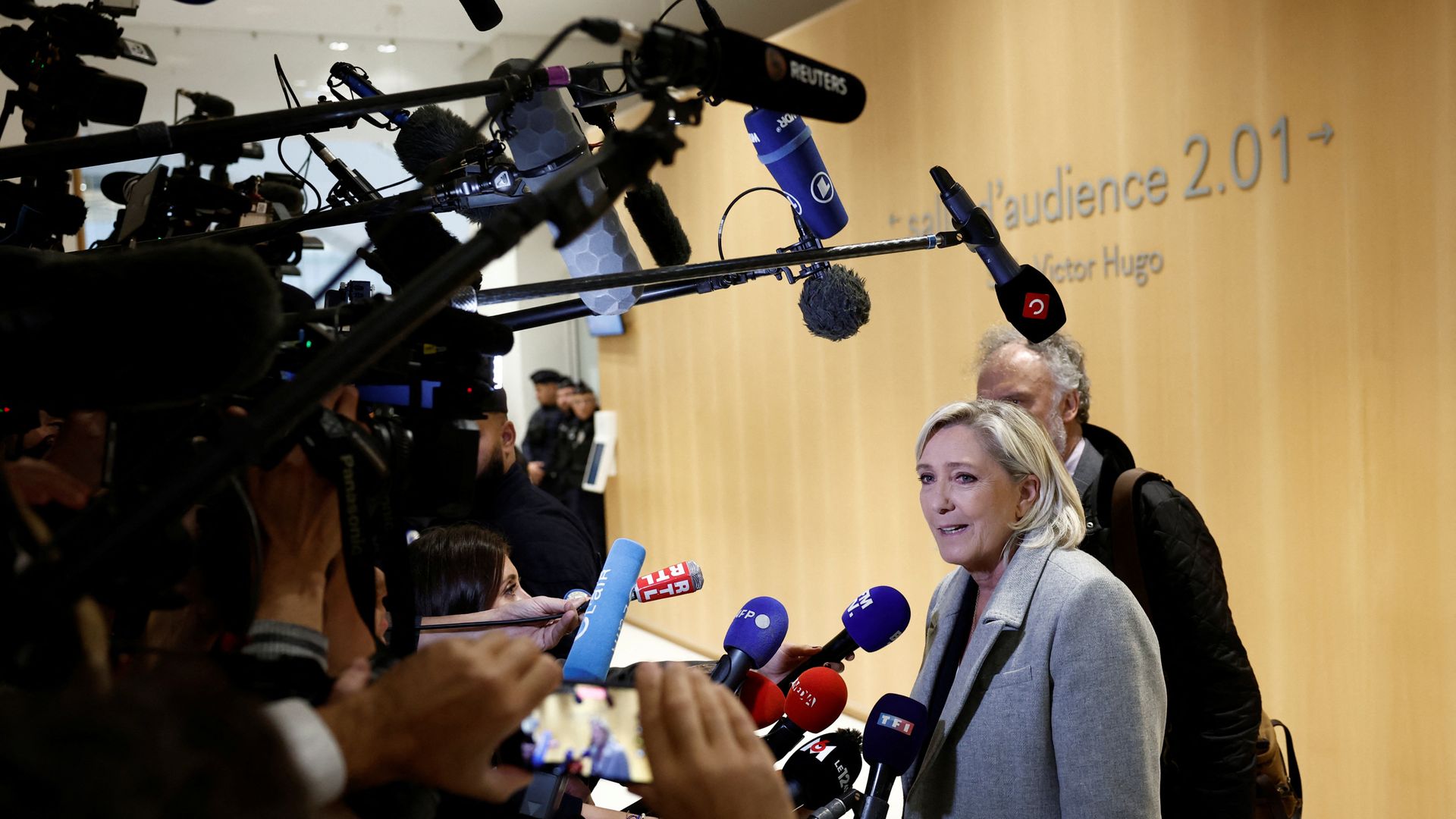A politician for 12 years, in government for nine, and a secretary of state across six different departments, Sajid Javid has been at the top of the political tree in the UK for the best part of a decade, serving as our chancellor, home secretary and health secretary.
He knows a lot about government and a lot about what’s really going on behind closed doors – a seasoned political operator, he also knows how to dodge a question in an interview and when to toe the party line.
But now that he’s decided to quit politics in 2024, he used our conversation in Beth Rigby Interviews to do something quite different: speak honestly about the NHS and how he thinks it needs to change.
Politics latest: Cost of trip Liz Truss cut short to launch leadership bid revealed
Please use Chrome browser for a more accessible video player
When he was appointed health secretary in June 2021, no-one envied the job. He was tasked with trying to clear the NHS backlog that had ballooned during the COVID crisis.
When Mr Sajid took up the post, the waiting list was 5.3 million. It is now 7.2 million, and this former health secretary tells me that he thinks it will continue to go up for a while before it comes down.
But what the ex-minister wanted to use our interview for was to talk not about the immediate NHS pressures but the bigger picture.
Sajid Javid: Ex-health secretary issues warning over NHS as he admits odds stacked against Tories at next election
Sajid Javid stepping down at next election
No 10 wades into row over Trevor Noah’s ‘simply wrong’ comments on Rishi Sunak
Read more: Ex-health secretary issues warning over NHS
He told me that he “doesn’t think the NHS will survive many more years” in its current form unless there is fundamental reform, and said we cannot pretend that the current system is providing good healthcare for people when “everyone is queueing for everything”, from a doctor’s appointment to an ambulance or hospital bed.
“Having worked up close now with the health service, I don’t think the model of the NHS that was set up some 70 years ago is sustainable for the future,” he said.
“You know that the world has changed and the NHS has not moved with that. Even before the pandemic, it was moving in that direction.
“And because of the change in demography, people are living longer, therefore needing more health care, and social care for that matter, new medicines. And everyone rightly wants to get access to new medicines and treatments and also the changing burden of disease.
“You know, we have a lot more obese people today, we have a lot more problems with addiction. So the NHS needs to change… we need an honest debate about the future of the NHS.”
‘Keeping the show on the road’
Mr Javid told me that this debate is being stymied by politics, as politicians with skin in the game are unable to talk about the challenges of the NHS without it being used as an attack by their opponents.
He pointed to the recent furore in Scotland, where reports of discussions around asking the wealthy to pay for treatment provoked a furious backlash and were shut down before they even began.
But he, alongside some others on the backbenchers such as David Davis, wants to use his newfound freedom to open the discussion about how to fund the NHS while maintaining the principle of it being universal and free at the point of use.
Because the question of fundamental reform is a big and urgent one. The NHS now accounts for just over 40% of government spending but is struggling to meet demand, despite record levels of funding.
In the autumn statement, the government announced £6bn of extra funding over the next two years, but nearly all of this will be eaten up by costs of inflation and growing demand, with £800m left for improvement of services, according to Nuffield Trust analysis shared with Sky News.
Matthew Taylor, chief executive of the NHS Confederation, said the new money allocated in November wouldn’t do much more than allow the NHS to “just about keep the show on the road”.
Mr Javid didn’t want to be drawn on what sort of funding model he would recommend, but said it was time to look at the German and French systems to see how fellow Europeans do it.
“They seem to be doing better than we are at the moment, so we have got to ask ourselves how they managed to do that,” he said.
“And they are mostly funded by the taxpayer, but they also have some different models.”
In Germany, there is a dual public-private system in which healthcare is funded by statutory contributions, with the additional option of taking out private health insurance to replace or top up state cover.
France, meanwhile, runs a statutory health insurance system, providing universal coverage for residents financed from four sources:
• Citizens pay obligatory health contributions levied on earned income, paid by employers, employees and the self-employed
• Contributions levied on unearned income
• Central government funding
• And users typically have to pay a small fraction of the cost of treatment they receive
Grasping the nettle on the NHS is, admits Mr Javid at the end of our interview, his unfinished business in politics.
“I would have in a way liked to have more time to look at reform and have that honest debate,” he told me.
But the political reality means that sort of debate is unlikely to happen this side of a general election.
Neither the Conservatives or Labour will want to risk doing anything that might be perceived in any way as creating a two-tier health service or threatening the principle of having an NHS that is free at the point of use.
For Labour, a party always trusted with the NHS, it is a boat Sir Keir Starmer will not want to rock, with Labour insiders telling me there is no way the leadership will open up any discussion about how the NHS funding model might change.
Instead, the shadow health secretary Wes Streeting will focus on how to better organise the NHS and shift attention towards preventive medicine and treatment.
As for Rishi Sunak, he hasn’t the bandwidth to be bold on fundamental reform as he struggles to keep his party even in the race for 2024.
‘Very bad period for country’
Even Mr Javid, perhaps more candid now he is out of cabinet, admitted the “odds are stacked against us” going into the 2024 and that the Liz Truss’s premiership “was a very bad period for our country”.
The former minister, who backed Ms Truss in the summer leadership campaign, said it was “obvious from the start, really, that she wasn’t going to be up for the job”.
Mr Javid told me that her decisions to side-line independent fiscal watchdog the Office of Budget Responsibility was “completely wrong”, as was the fighting with the Bank Of England and Ms Truss’s decision to fire the head of the Treasury as soon as she became prime minister.
“That was before the mini-budget and I think it got worse and worse at that point,” he added. “So I think it is something that was a very bad period for the country.”
A bad period, a bumpy 2023 ahead and a “tough battle” in the 2024 election, this former leading politician has decided it’s time to pursue a career outside politics once more.
He certainly won’t be the last big name Conservative to do so as the party eyes the opposition benches.








